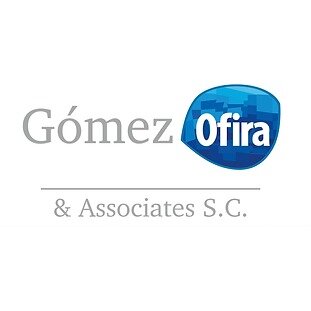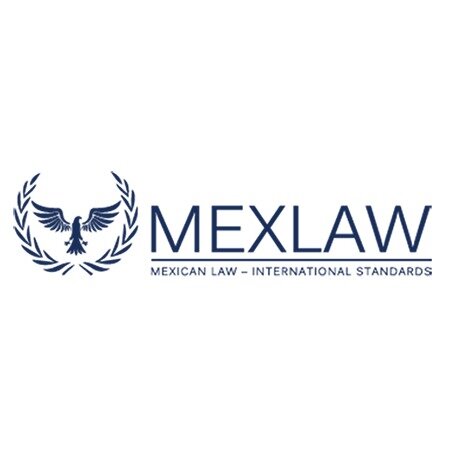Best Corporate Governance Lawyers in Mexico
Share your needs with us, get contacted by law firms.
Free. Takes 2 min.
Or refine your search by selecting a city:
List of the best lawyers in Mexico
About Corporate Governance Law in Mexico
Corporate governance in Mexico refers to the set of rules, practices, and processes that dictate how companies are directed and controlled. It outlines the distribution of rights and responsibilities among different participants in the corporation, such as the board of directors, managers, shareholders, and other stakeholders. The aim is to ensure accountability, fairness, and transparency in a company’s dealings, enhancing investor confidence and promoting sustainable economic growth. In Mexico, corporate governance practices are shaped by local legislation, international standards, and voluntary codes recommended by the government and industry groups.
Why You May Need a Lawyer
Seeking legal advice in the field of corporate governance is essential for numerous reasons. Common situations include:
- Incorporating or restructuring a company to comply with Mexican regulations.
- Drafting and reviewing internal policies such as codes of ethics, conflict of interest policies, and transparency guidelines.
- Resolving disputes between shareholders or between the board and management.
- Managing risks related to regulatory compliance or securities market participation.
- Addressing issues of fraud, corruption, or mismanagement within a company.
- Preparing for audits or inspections by regulatory authorities.
- Mergers, acquisitions, or divestitures where governance issues can affect valuation and negotiations.
- Ensuring the rights of minority shareholders are protected.
A lawyer can help ensure that your company operates within Mexican legal frameworks, reducing the risk of costly litigation or regulatory penalties.
Local Laws Overview
Corporate governance in Mexico is primarily regulated by the General Law of Commercial Companies (Ley General de Sociedades Mercantiles), the Securities Market Law (Ley del Mercado de Valores), and sector-specific regulations. Key aspects include:
- Types of Corporate Entities: The most common types are Sociedad Anónima (S.A.) and Sociedad Anónima Bursátil (S.A.B.), which is publicly listed and subject to stricter standards.
- Board Structure: Companies must have a board of directors responsible for management. Listed companies are also required to have independent directors.
- Minority Rights: Laws ensure protection of minority shareholder rights concerning voting, information access, and remedy actions.
- Transparency Requirements: Listed companies must disclose key financial and operational information to the public and regulatory authorities.
- Audit Committees: Larger or listed companies must have an audit committee to oversee financial reporting and ethical conduct.
- External Oversight: The National Banking and Securities Commission (CNBV) and other authorities supervise corporate governance practices.
- Voluntary Codes: The Mexican Code of Best Corporate Governance Practices, while not mandatory, serves as a guide for many companies.
Frequently Asked Questions
What entities are subject to corporate governance rules in Mexico?
All commercial entities must follow corporate governance rules, but public companies and financial institutions face stricter requirements. Smaller, privately held companies typically have more flexibility but still need to comply with basic governance principles.
What are the key legal frameworks governing corporate governance in Mexico?
The primary legal frameworks are the General Law of Commercial Companies and the Securities Market Law. There are also sector-specific laws for banking, insurance, and other regulated industries.
What is an independent director and when is it required?
An independent director is a board member who does not have a material relationship with the company that could affect their judgment. Public companies are required to have a certain number of independent directors to ensure objective oversight.
How are minority shareholder rights protected?
Mexican law grants minority shareholders specific rights, such as calling shareholder meetings, voting on crucial actions, accessing information, and initiating legal action against management for misconduct.
What are the main transparency requirements for public companies?
Public companies must regularly disclose financial statements, major transactions, risks, and changes in management or control to the investing public and regulators.
Are there penalties for failing to comply with corporate governance standards?
Yes. Failure to comply can result in fines, sanctions, loss of public listing, and legal liability for directors and officers. Reputational damage can also harm a company’s business interests.
What is the role of the National Banking and Securities Commission?
The CNBV supervises compliance with financial and securities market regulations, including oversight of corporate governance practices for listed companies and financial institutions.
What is the Mexican Code of Best Corporate Governance Practices?
It is a voluntary code recommending governance standards for companies operating in Mexico, aiming to improve transparency, board effectiveness, and protection of shareholder rights beyond the legal minimum.
How often must board meetings be held?
The frequency of board meetings depends on the company’s bylaws, but public companies are typically required to hold a minimum number of meetings yearly, with proper records kept for all major decisions.
Do family-owned businesses have to follow corporate governance rules?
Yes, all companies must comply with the law. However, smaller and family-owned businesses can tailor their governance structures, provided they adhere to the legal basics outlined by the General Law of Commercial Companies.
Additional Resources
Those seeking more information or assistance can consult the following:
- The National Banking and Securities Commission (Comisión Nacional Bancaria y de Valores, CNBV) - the main regulatory authority for listed companies
- Mexican Business Coordinating Council (Consejo Coordinador Empresarial, CCE) - offers guidelines and training on governance best practices
- Stock exchanges like Bolsa Mexicana de Valores (BMV) - provide resources for listed companies
- Professional law or accounting firms specializing in corporate law
- Chambers of commerce and industry associations
Next Steps
If you need legal guidance regarding corporate governance in Mexico, consider the following:
- Assess your company’s current governance practices and identify potential legal risks or gaps.
- Gather relevant documents such as company bylaws, shareholder agreements, and recent compliance reports.
- Contact a qualified Mexican lawyer or law firm with expertise in corporate governance and commercial law.
- Prepare a list of specific questions and challenges your company faces to discuss during your consultation.
- Stay informed by reviewing available resources from regulatory bodies and industry associations.
Early legal advice can prevent compliance issues, safeguard your company’s reputation, and help foster transparency and accountability. Consider a formal legal consultation as the first step toward strengthening your corporate governance structure.
Lawzana helps you find the best lawyers and law firms in Mexico through a curated and pre-screened list of qualified legal professionals. Our platform offers rankings and detailed profiles of attorneys and law firms, allowing you to compare based on practice areas, including Corporate Governance, experience, and client feedback.
Each profile includes a description of the firm's areas of practice, client reviews, team members and partners, year of establishment, spoken languages, office locations, contact information, social media presence, and any published articles or resources. Most firms on our platform speak English and are experienced in both local and international legal matters.
Get a quote from top-rated law firms in Mexico — quickly, securely, and without unnecessary hassle.
Disclaimer:
The information provided on this page is for general informational purposes only and does not constitute legal advice. While we strive to ensure the accuracy and relevance of the content, legal information may change over time, and interpretations of the law can vary. You should always consult with a qualified legal professional for advice specific to your situation.
We disclaim all liability for actions taken or not taken based on the content of this page. If you believe any information is incorrect or outdated, please contact us, and we will review and update it where appropriate.
Browse corporate governance law firms by city in Mexico
Refine your search by selecting a city.

















